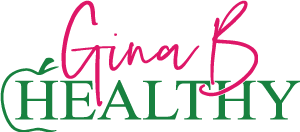For centuries botanical extracts have been supporting health on a variety of levels. When it comes to supporting optimal brain health, Ginkgo biloba and Lion’s Mane may be two botanical extracts worth considering for your patients. Supporting and protecting brain health is a priority for many people. Whether there is a family history of brain health issues or just a desire to remain sharp and cognitively strong, extra support may be desired. In addition to looking at diet and lifestyle factors for the brain, there are two botanical extracts that have an interesting connection to brain function. Recommending one or both may make sense for many patients.
Ginkgo Biloba
Ginkgo biloba is not new to the brain health category. It is perhaps the most widely studied botanical for brain health presently available. In Japanese decorative art, its distinctive fan-shaped leaf has been a symbol of longevity. The ginkgo tree can live for a thousand years! The compounds in the leaves from the ginkgo biloba tree help support blood flow to the brain and also contain a powerful antioxidant activity. Research has shown that the compounds in ginkgo biloba can help support memory and cognitive speed. Typically, the supplements are standardized to contain 24% flavone glycosides and 6% terpene lactones. To support cognition, many of the studies used between 120 mg to 600 mg daily. Other ginkgo biloba benefits are: helps decrease inflammation, improves circulation, helps fight anxiety, reduces symptoms of PMS, supports eye health, increases healthy skin and more. Possible side effects can be nausea, diarrhea, dizziness, headaches, stomach ache, restlessness, and vomiting.
Depending on one’s condition doses vary from 30 mg to 360 mg with 23-43% Flavonoids and 6-12% terpenoids. Ginkgo biloba comes in capsules, tablets, liquid extracts, and dried leaves.
Hello Lion’s Mane
A mushroom called Lion’s mane is an edible and medicinal mushroom belonging to the tooth fungus group. Native to North America, Europe and Asia the “smart mushroom“ shows some promise in supporting brain function. The active ingredients hericenones and erinacines in the fruiting body of this mushroom extract have been shown to support brain function in several ways including at the cellular level. Lion’s mane contains nerve growth factors that help support nerve regeneration in the brain.
Other benefits are anti-inflammatory, may relieve mild depression and anxiety, show faster recovery of nerve damage, lowers blood glucose, and lowers triglyceride levels.
This edible fungus is safe and appears to confer cognitive benefits on our aging population.
- Doses: available in powder and capsule. Dosing depends on the strengths. Formulas can be different depending on the stack and what type of extract is used and varieties available.
- Plain Lion’s Mane- Pure powder form, often freeze dried. Least expensive. Add to water, juice, and smoothies.
- Lion’s Mane extract- More potent. Comes in 14:1 and 10:1
- Standardized Lion’s Mane – Processed to bring exact active ingredient from 30%-50% Polysaccharides where active ingredients are found.
- Lion’s Mane Tea- popular for tea, hard to tell how many active ingredients.
- Amycenone/PLM-Fraction – Branded Product originating in Japan, expensive. Contains .5% Hericenones, 0.6% Amyloban a lesser known active ingredient that fights Amyloid protein (culprit of Alzheimer’s). Suggested dose can be 250 mg/day.
To date, there are no known human side effects. At higher doses, there have been symptoms of feeling itchy, possibly related to the nerve growth factor.

